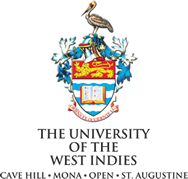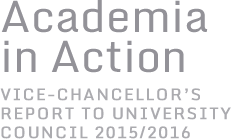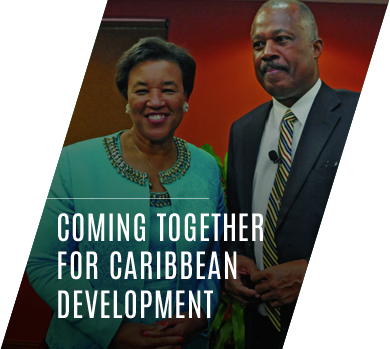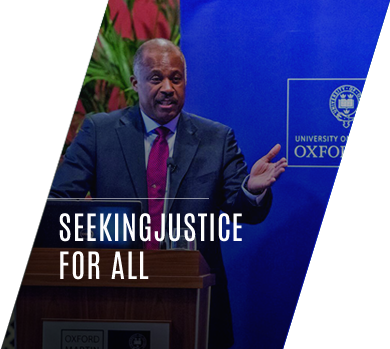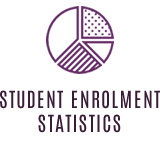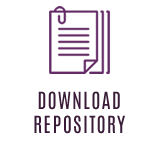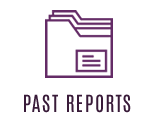The UWI: Net Contributor to the Region
The Moore Report conducted in 2014 clearly demonstrated the significant net contribution made by The UWI to Barbados’ economy. Were similar studies to be done in Jamaica and Trinidad & Tobago, they would no doubt also indicate that The UWI is a net revenue generation centre, and a financial partner in development. The Moore Report found that—through foreign exchange earnings— the contribution of the Cave Hill Campus to the Barbados economy rivalled Barbados’ other industries (e.g. earning five times as much as the sugar industry). The Campus also generated, on average, approximately BDS$200 million of additional economic activity (or over 2% of the island’s GDP).
The UWI’s Business Development, Consulting and Research arms all generate income, in addition to sharing much-needed expertise with regional and global stakeholders. Through donors (including alumni and members of the Caribbean diaspora), foreign governments and international organizations, including multilateral development agencies, The UWI also attracts much-needed funding and investment to the region. The Moore Report helps demonstrate that private and public investment in The UWI impacts positively on the economic life of the Caribbean.
The Activist University at Work
As Vice-Chancellor of The UWI, I am dedicated to the active and engaged role and functions of the academic community in promoting growth in both the economy and the society, and achieving their sustainability to assure competitive industries and a more civil and sophisticated society. We are determined to be more engaged—locally, regionally, and globally—to actively confront the region’s challenges in the search for sustainable solutions and revitalize Caribbean development. I believe we have made a great deal of impact in 2015-2016 in demonstrating service to the region. We hold dear our commitment to be a beacon for the transformation of ourselves, our institution and society.
The UWI is part of a series of networks aimed at crafting a new, more holistic vision for Caribbean development. As the region’s leaders work to identify a coherent plan of action for collective progress, it is important to continue to make the process of discussion inclusive: encouraging the contribution of students and other Caribbean youth, as well as stakeholders from different sectors of society.
Caribbean Future Forum
The Caribbean Future Forum was born from the need for UWI-Civil society platform to discuss crucial problematic areas that affect the Caribbean region. It is considered the first practical outcome from the Forum on the Future of the Caribbean which took place in Trinidad & Tobago in May 2015 at The University of the West Indies, St. Augustine and the Hyatt Regency Hotel, Port of Spain.
The Forum brought together a variety of stakeholders: heads and ministers of government, directors of regional and international organizations, members of the diplomatic corps, academics, private sector leaders, youth, civil society and policymakers from within and outside the region, to strategically re-envision a transformed Caribbean by 2050; incorporating the new models of development for the continued prosperity of all Caribbean peoples.
In activating 'A Strategic Vision for the Caribbean 2050', in May 2016, the publication, ‘Shifting the Frontiers, an action framework for the Future of the Caribbean’ was launched at the Learning Resource Centre, UWI, St. Augustine. The publication offered a distillation of the key points derived from the forum and highlighted the main areas that require action for the region’s development.
Engaging International Development Partners
With a mandate from the CARICOM Heads of Government to work with the tertiary education sector in the region to formulate a strategy for engaging with International Development Partners to drive Caribbean development, in November 2016, The UWI gathered a working group made up of the following organizations, to clarify and pursue this agenda.
- The UWI
- The Caribbean Community (CARICOM)
- Association of Caribbean Tertiary Institutions (ACTI)
- University of Trinidad & Tobago (UTT)
- University of Technology (UTech), Jamaica
- University of Guyana
- Anton de Kom University (ADEKuS), Suriname
- Université d’État d’Haiti (State University of Haiti)
Professor of Practice
As part of its efforts to deepen academy-industry partnerships and to connect The University’s teaching and research to relevant issues impacting industry in the region, The UWI has introduced the position of Professor of Practice, as approved by The University Appointments Committee on September 21, 2015. This gives departments the opportunity to host distinguished professionals and experts in their fields, either practicing or retired, to fixed-term teaching positions; making practical knowledge and real-world situations part of our students’ educational experience.
Brexit: Implications for the Caribbean
June 23, 2016 referendum. These symposia were held at The UWI Regional Headquarters in Jamaica, the Sir Arthur Lewis Institute of Social & Economic Studies (SALISES) in Trinidad & Tobago, and the Earl Barrow Centre for Creative Imagination in Barbados. The fora raised issues such as the depreciation of the pound and its potential impact on investments, tourism and remittances, as well as the standing of the Caribbean’s trade and funding agreements with the EU.
Some of my own recommendations to CARICOM in response to 'Brexit' included:
- launching a Task Force with The UWI, to research, monitor and report on the developments of the UK-EU negotiations and their repercussions for the region.
- establishing a Regional Research and Development Fund to facilitate innovation within the private sector and strengthen entrepreneurship.
- examining and strengthening the agreements made through CARIFORUM, particularly the EU Economic Partnership Agreement, and taking full advantage of the agreements negotiated by the African Caribbean and Pacific States (ACP) and the Community of Latin American and Caribbean States (CELAC).
- pursuing opportunities for alliances and trade with Asian, Pacific and African states.
Caribbean Growth Forum
Launched at The UWI in 2012, the CGF is a joint initiative by the Compete Caribbean Program, the Inter-American Development Bank, the World Bank, and the Caribbean Development Bank (CDB). It is supported by the Canadian International Development Agency, the United Kingdom’s Department for International Development, the CARICOM Secretariat, and The University of the West Indies.
The Forum facilitates public-private dialogue around issues central to creating sustainable and inclusive growth. It encourages an action-oriented dialogue around key policy reforms needed in three areas:
- Investment Climate
- Skills and Productivity
- Logistics and Connectivity.
Many Caribbean territories have drafted or completed national growth strategies. Therefore, the Forum’s aim is to identify the priorities within these three areas (listed above) that can contribute to these national strategies. The Steering Committee is comprised of the Secretary General of CARICOM, President of the CDB, and the Vice-Chancellor of The UWI. The Advisory Board is comprised of a mix of public and private sector representatives, civil society, academia and young people from across the region. The CGF’s methodology has been designed to result in a consensual, concrete action plan with specific responsibilities and timelines, along with built-in transparency and accountability mechanisms to make sure that, over time, results are delivered.
The University of the West Indies recognizes the importance of institutional strengthening in the region and so continues to play a lead role in aligning the institution with the key drivers of growth.
Social Justice Central to Development
The UNDP's Caribbean Human Development Report 2016, titled “Multidimensional Progress: human resilience beyond income” highlighted the need to rethink the methods for ranking development in the region’s countries that go beyond per capita income, economic growth rates and Gross Domestic Product (GDP). The Caribbean HDR called on governments, the private sector and all of society to rethink the region’s progress along multidimensional lines, inspired by the 2030 Agenda for Sustainable Development... The Report clearly stated that "[N]othing that reduces the rights of people and communities or threatens environmental sustainability can be considered progress..."
(http://hdr.undp.org/en/content/regional-human-development-report-2016-caribbean).
There is an urgent need in the region to grapple with the social dimension of development. This requires us to confront the effects of our history and address ongoing issues of inequality and injustice, in order to create a more inclusive and equitable society for all Caribbean people. As an activist university, The UWI has a crucial role to play in supporting this movement toward multi-dimensional development. Some examples of our contribution to equity and justice for all include:
- The call for Reparatory Justice for generations of uncompensated labour forced upon enslaved Africans and their descendants in the Caribbean, which has contributed to impoverishment of the region: an issue taken up by the CARICOM Reparations Commission, of which I am Chair.
- The IMPACT Justice Project (http://caribbeanimpact.org/): a five-year regional justice sector reform project funded by the Government of Canada, implemented from within the Caribbean Law Institute Centre, Faculty of Law, UWI Cave Hill, to enhance access to justice for men, women, youth and businesses in 13 CARICOM Member States.
- Research, fora and public engagement undertaken by the Institute of Gender and Development Studies at the Cave Hill, St. Augustine, and Mona campuses to address gender-based violence, the rights and contributions of women, healthy manhood and masculinity, issues of sexuality and sexual health, and the drafting of both National and UWI Gender Policies for equal status and opportunities for all men and women in the region (https://sta.uwi.edu/igds/CaribbeanGenderResearch.asp).
